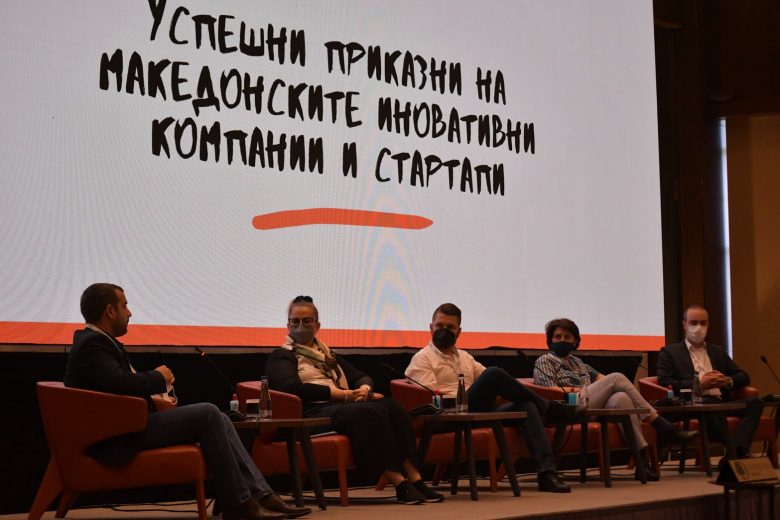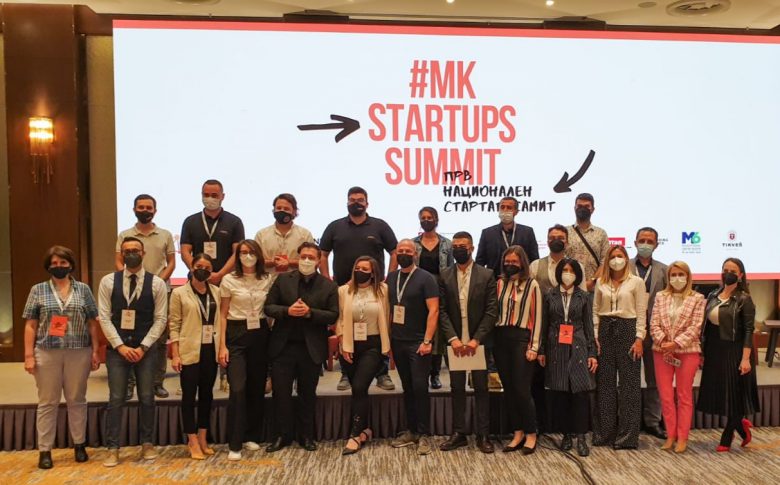Under the motto “Together we make an impact”, North Macedonia held its 1st National Startup Summit, Friday May 28th). “Innovative ideas bring progress to the world,” Prime Minister Zoran Zaev said in his opening speech, reaffirming the Western Balkan country’s government’s support for innovators and entrepreneurs.
At the end of 2020, a Startup Council was founded in this Western Balkan country, enabling a structural dialogue between relevant stakeholders and national authorities, led by Deputy Prime Minister of Economy and Investment Fatmir Bitiqi. “Entrepreneurship contributes to a stable economy,” he said at the summit, reiterating the government’s commitment to paving the way for startup success through systematic solutions that facilitate services and create opportunities. best conditions.
HE Sybille Suter Tejada, Ambassador of Switzerland to North Macedonia and Kosta Petrov, Director of the Fund for Innovation and Technological Development (FITD), delivered introductory speeches, reaffirming their commitment to the future development of the country’s ecosystem . Nina Nikolic from Startup Macedonia and Kristijan Mileski of Business Impact Laborganizers of the summit, spoke about the significant progress made by the country in the bottom-up construction of the startup ecosystem, thanking SwitzerlandEP And FITD for their valuable support.
North Macedonia has come a long way

“I had the chance to be one of the first participants in the startup ecosystem. A lot has changed, especially since 2016. I see progress both in supporting organizations and startups,” said Gjoko Rafajlovski from SEEU technology parkwho is a member of the Startup Council, during the first roundtable, which offered an overview of the ecosystem in North Macedonia.
“As an avid amateur runner, I’ll use an analogy. Three or four years ago, we were fans and ambitious candidates, and everyone was running a marathon and a half marathon. We knew what we had to do, but we were afraid to race. Now, not only are we in the race, but we are 13-14 km from the start line. The moment when the surprises start, when you have cramps but you turn around and see lots of smiling faces, that’s the moment when you know that you are a proven player, that you are in a game and that you are going to finish these 21 or 42 km. . We have to finish this race,” said Vesna Ivanoska of Seavus Accelerator.
+++Entrepreneurs, innovators, leaders: North Macedonian women are leading the way to the future++
What does it take to succeed?
“Building a successful startup has challenges every step of the way. You start with an idea, you go to the market, but the market needs something else, so you adapt,” said Petar Ninovski of Brainsterexplaining the importance of adaptability and product market fit.
“Find your team!” » » was the next piece of advice from the panelists. “Finding people is not easy,” said Svetlana Kordumova of Pixyle.ai. “We work with artificial intelligence and high technology, so our strategy is to hire people and train them and I am proud of my team for how quickly they learned. However, when a business enters a growth phase, time is not spent on training. The ecosystem must therefore produce more trained professionals,” she added.
Another point made by Svetlana is the need to encourage people to make mistakes, as these are opportunities to learn.
“It’s important that you learn from your mistakes and figure out where you want to go next. In the ecosystem, programs used to focus on technology, product development and very little on sales strategies and marketing. Now I see more attention being paid to sales and business skills. More and more companies are becoming profitable faster and I think things are moving forward,” Rafajlovski added.
A shared sentiment at the end of the panel was that business skills are important. Entrepreneurs and innovators often forgo the business aspect and focus on products, services and technology development, which affects their ability to build a sustainable business. They need to be better prepared in the areas of finance, investments, sales, etc.
“Social enterprises face additional challenges in setting up their processes, because apart from maximizing profits, there is another element of contributing to positive social change,” said Asib Zekir, director of Ready Recycling, which participated in the “Impact Businesses” event. sign.
“One thing is certain: building a startup from scratch requires a lot of knowledge, determination and a strong team to take you to the top. The greatest feeling in the world is when a client tells you: What you did helped me a lot! said Nino Karas of code well.
+++North Macedonia creates Startup Council to promote the country as a regional hub+++
Access to financing
“FITD and accelerators provide mentorship, but also a network of contacts that companies need to know how to use,” said Eli Zabevska of SC Ventures. A separate panel of the summit was dedicated to financing, during which representatives of SC Ventures, the XFactor accelerator, the CEED Club of Business Angels and ProCredit Bank joined the discussion.
The majority of startups in North Macedonia (60%) turn to FITD for initial funding and 70% of those who apply receive support. “This makes me proud, because the institution I am a part of participates in the development of the startup ecosystem,” said Kosta Petrov, director of FITD. “But on the other hand, it worries me. Because the private sector should lead us; and at the moment, it’s the opposite. Everyone says we don’t have enough startups. I think we lack investors willing to take risks. It’s time to take risks – the ecosystem demands it,” he added, announcing an investment fund that will help develop startups into more advanced stages.
Another novelty of the ecosystem is the involvement of the banking sector. “It’s not just a question of access, but also of the type of financing, the structure. You are looking for a bank that can do good analysis and give solid advice on how to overcome difficulties. This is what we offer to startups,” said Milan Damcevski of ProCredit Bank.
And after?

“We need services tailored to the local market and we need more investors,” said Gjoko Rafajlovski. “Realizing the dream of a “start-up nation” is actually a strategic decision. We need to think about it and get to work,” said Vesna Ivanoska.
“However, we also need to be careful in setting our strategic goals,” said Startup Council member Bistra Kumbaroska. “Today we heard speakers say we need a ‘unicorn’ and I agree. But it will make a huge difference if that unicorn is a startup that pollutes the air, or if it aims to protect the environment, like AirCare,” she explained. Kumbaroska added that the country would benefit from formally defining the terms “social entrepreneurship” and “social innovation”, so that FITD and other supporting institutions can announce open calls exclusively for these types of businesses.
As the country moves forward, startups must remain at the center of all developments. This is the only way to ensure that the policies adopted reflect their needs. They should be given every opportunity to tell their story and lead by example – either to teach a lesson or to inspire future entrepreneurs and innovators.
“It is also necessary to increasingly recognize the importance of other sectors, apart from IT, and invest in their development, such as agriculture for example,” said Vladimir Vuksanovic, co-founder of Orgalife.
Startups, on the other hand, need to focus on developing their business skills and choose their teams carefully. “We also need to develop a culture of giving back.” For example, I found my co-founder in the ecosystem,” said Svetlana Kordumova. Investing in the ecosystem promotes growth and benefits everyone.
“Let’s motivate people to start their own business, this is an area where we can contribute,” said Petar Ninovski. “The mindset of younger generations needs to change: let’s educate them about the prospects of becoming an entrepreneur and teach them that it’s something they can actually achieve. »

